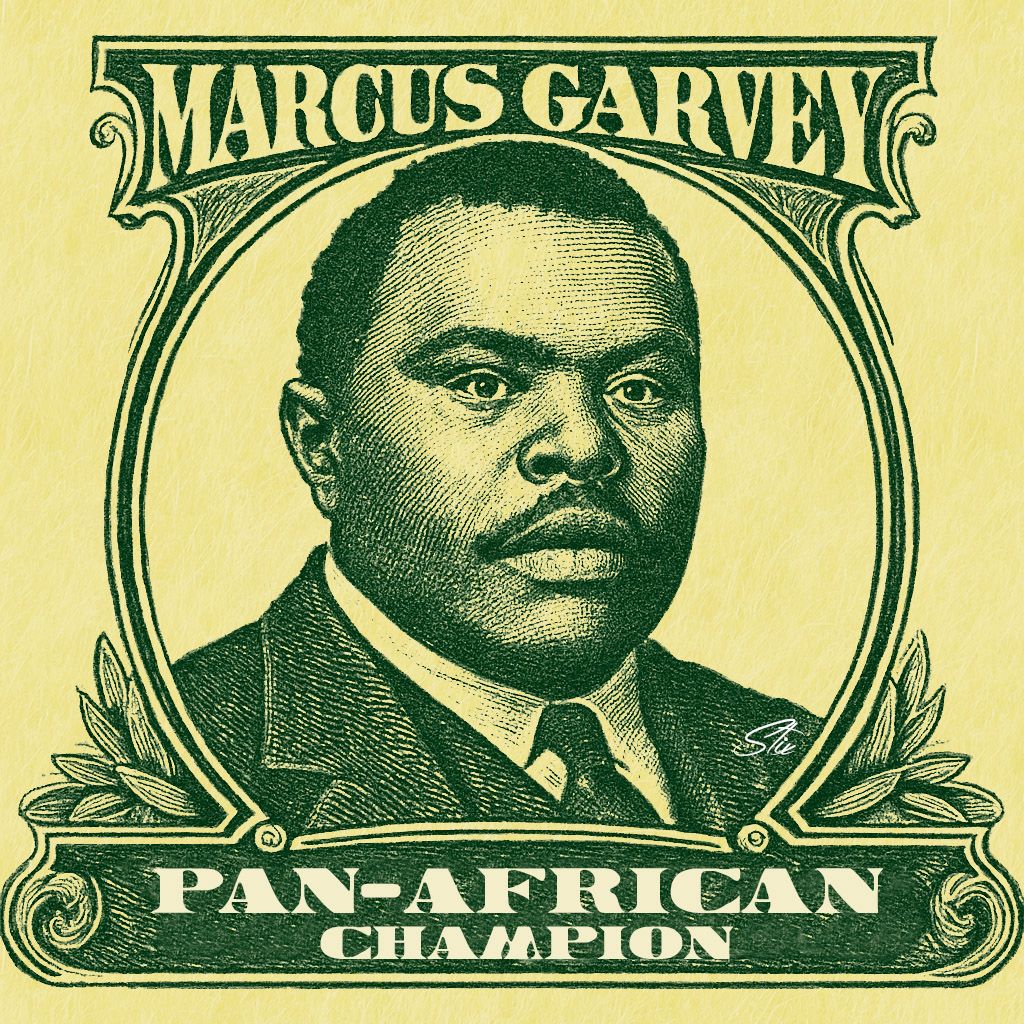Marcus Garvey: A Pan-African Legacy That Still Resonates
August 17, 2025 — Today marks the 138th anniversary of the birth of Marcus Mosiah Garvey, Jamaica’s first national hero and one of the most influential Pan-African leaders of the 20th century. Garvey’s vision of Black self-determination, economic independence, and African unity continues to inspire movements for liberation and empowerment across the globe. As we reflect on his legacy, we examine his contributions to Liberia, Ghana, and the broader Pan-African world, the enduring influence of the Universal Negro Improvement Association (UNIA), and how his ideas remain relevant in contemporary struggles for justice and sovereignty.
Garvey’s Vision for Africa: Liberia and the Back-to-Africa Movement
Marcus Garvey’s most ambitious Pan-African project was his plan to establish a foothold in Liberia, then one of only two independent African nations (alongside Ethiopia). Through the UNIA, Garvey sought to resettle African diasporans in Liberia, develop infrastructure, and create a model for Black self-governance. In 1920, he sent emissaries to negotiate with Liberian President Charles King, proposing investments in agriculture, education, and industry to strengthen the nation’s economy .
However, colonial powers—particularly Britain, France, and the U.S.—saw Garvey’s plans as a threat to their imperial interests. By 1924, under pressure from Firestone Tire Company (which sought control of Liberia’s rubber industry), the Liberian government revoked UNIA’s land grants and banned the organization. Despite this setback, Garvey’s dream of a liberated Africa persisted, influencing later movements for decolonization .
ADVERTISMENT

ADVERTISMENT
Ghana: Garvey’s Influence on Kwame Nkrumah and the Black Star
Garvey’s impact extended far beyond Liberia. Ghana’s first president, Kwame Nkrumah, cited Garvey’s Philosophy and Opinions as a foundational text that shaped his Pan-African ideology. Nkrumah honored Garvey by naming Ghana’s national shipping line the Black Star Line, after Garvey’s ill-fated but symbolically powerful venture .
Additionally, Ghana’s Black Star Square in Accra and its national football team, the Black Stars, pay homage to Garvey’s red, black, and green Pan-African flag—a symbol of unity adopted by multiple African nations, including Kenya and Malawi . Nkrumah’s vision of a united Africa (later embodied in the Organization of African Unity) was deeply rooted in Garvey’s call for political and economic self-reliance.
The UNIA Today: Keeping Garvey’s Legacy Alive
Though the UNIA’s peak membership of 11 million in the 1920s has dwindled, its principles endure. Modern Garveyite movements emphasize:
- Economic Empowerment – The Negro Factories Corporation model (which included grocery stores, laundries, and a printing press) remains a blueprint for Black cooperative economics .
- Cultural Pride – The UNIA’s emphasis on African history and identity laid the groundwork for Black History Month and Afrocentric education .
- Political Advocacy – Garvey’s Declaration of the Rights of the Negro Peoples of the World (1920) was a precursor to later human rights charters, including the UN’s Universal Declaration of Human Rights .
Today, UNIA chapters still operate in the U.S., Caribbean, and Africa, though they lack the mass influence of Garvey’s era. However, his ideas live on in movements like Black Lives Matter, Afrofuturism, and campaigns for reparations .
Garvey’s Enduring Legacy in Current Affairs
In 2025, Garvey’s teachings remain strikingly relevant:
- Reparations & Economic Justice – His call for Black financial independence resonates in modern demands for reparations and community-owned enterprises .
- Pan-African Solidarity – The African Continental Free Trade Area (AfCFTA) reflects Garvey’s dream of intra-African trade and unity .
- Resistance to Neo-Colonialism – As Western powers continue to exploit African resources, Garvey’s warnings about economic domination ring true .
Conclusion: “Up, You Mighty Race!”
Marcus Garvey’s life was marked by both triumph and persecution—from his mail fraud conviction (later posthumously pardoned by President Biden) to his untimely death in 1940. Yet his vision of a liberated Africa and a proud, self-sufficient Black diaspora endures. As we honor his birthday, let us reaffirm his challenge:
“Africa for the Africans, at home and abroad!”
The struggle continues.
Sources & Further Reading:
- Marcus Garvey’s UNIA and Liberia’s Betrayal
- Garvey’s Influence on Kwame Nkrumah
- The UNIA’s Economic Vision
- Garvey’s Modern Relevance

Leave a Reply